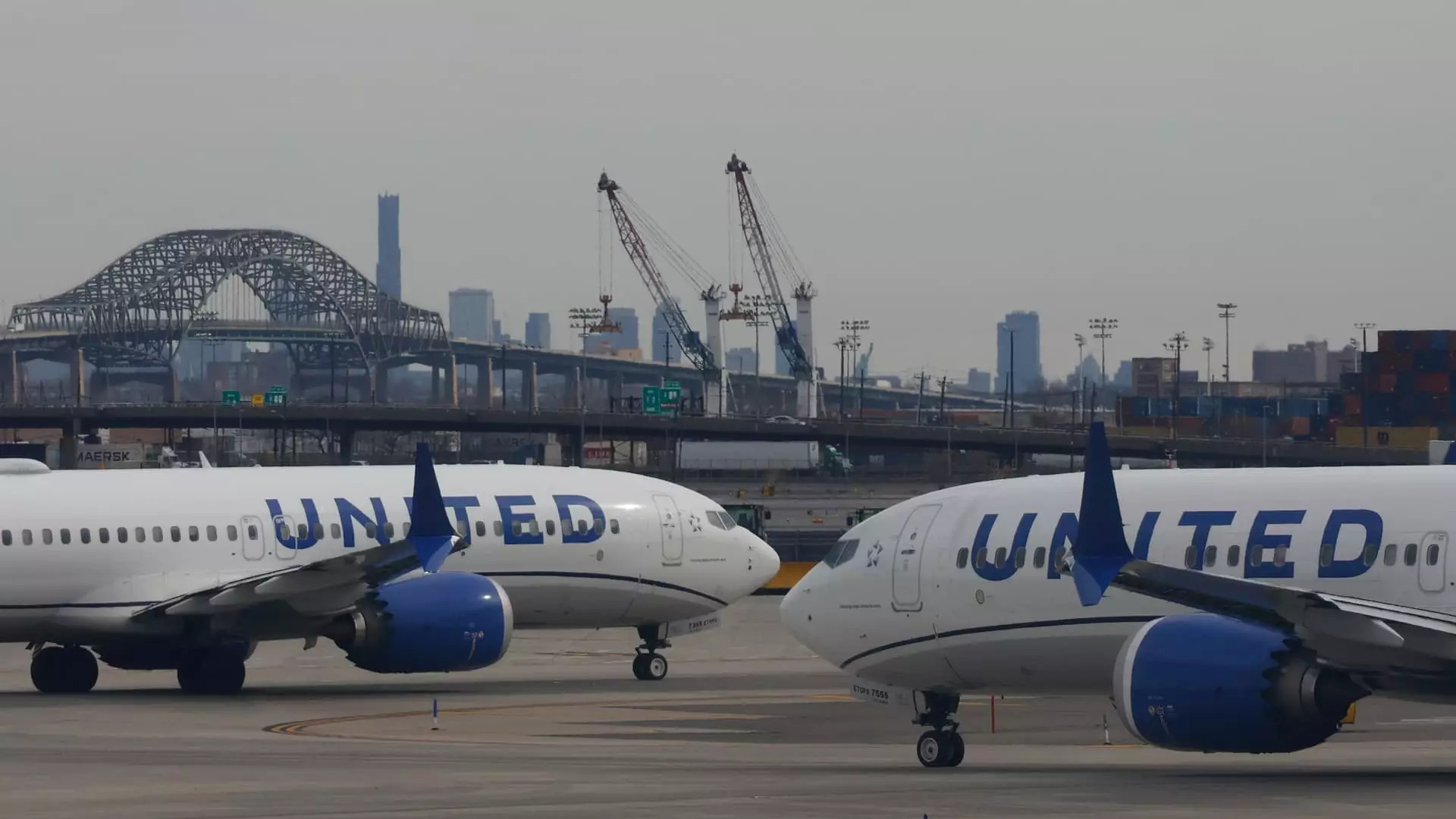In an alarming revelation that underscores the fragility of air travel in the current climate, United Airlines is set to slash 35 daily flights at Newark Liberty International Airport. This drastic measure comes in the wake of a tumultuous week during which thousands of passengers endured disarray marred by hours of frustrating delays. Scott Kirby, the airline’s CEO, attributed this predicament to an enduring crisis of air traffic controller staffing shortages and persistent technical failures. What should be a hallmark of efficiency and reliability has quickly morphed into a cautionary tale about systemic vulnerabilities in the aviation infrastructure.
Systemic Failures at a National Level
One can’t help but view this situation as symptomatic of broader issues plaguing not just United Airlines but the entire air travel ecosystem. Over 300 flights experienced delays at Newark alone on a single Friday, with a staggering 1,400 disruptions tallied earlier in the week, according to FlightAware. Such widespread chaos should ignite serious discussions regarding the state of our air traffic control systems. The narrative from Kirby signalizes a critical point: with no immediate resolution in sight for staffing shortages, the airline felt pigeonholed into trimming its already lean schedule—an inauspicious move for an airport known for its congestion and operational strife.
FAA’s Dismal Response and Broader Implications
The role of the Federal Aviation Administration (FAA) in this debacle cannot be overstated. Once an apex of aviation oversight, the FAA is now criticized for its lackluster response to these chronic staffing issues. Recent moves, such as the proposed incentives to recruit more air traffic controllers, appear to be band-aid solutions to a gaping wound. The reality is that these staff shortages have festered over years, exacerbated further by the training disruptions caused by the COVID-19 pandemic. It prompts a dire question: are we truly prepared to handle the resurgence in air travel demand? A robust staffing framework is not merely preferable; it is essential for restoring confidence in the air travel experience.
A Customer-Centric Approach or Corporate Overreach?
Even as United Airlines steps back from its aggressive scheduling, it has announced waivers on change fees for affected customers—a customer care strategy that seeks to mitigate outrage but feels, at best, like a temporary salve. It raises an underlying concern about public trust: do such gestures really suffice in the face of substantial operational inconsistencies? There’s a fine line between customer service and optics, and the recent actions by United Airlines could be interpreted as an example of the latter. In this digitally connected age, transparency and accountability are non-negotiable. Customers deserve to be treated not just as passengers but as valued stakeholders.
In this spiraling landscape, the need for responsible governance in both the corporate and regulatory arenas is vividly clear. The future of air travel hinges on recognizing these systemic issues and crafting solutions that ensure accountability and sustainability in operations. This is not just a matter of capacity; it’s a pressing call for revolutionizing how we perceive and implement modern flight protocols.

